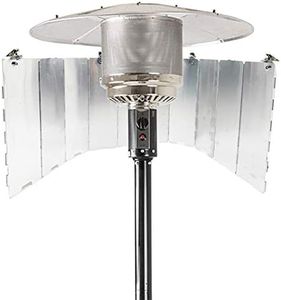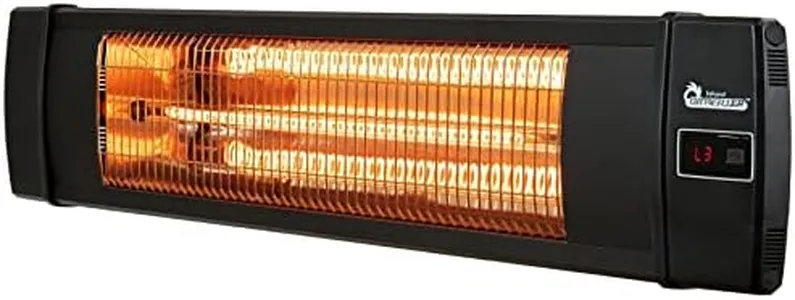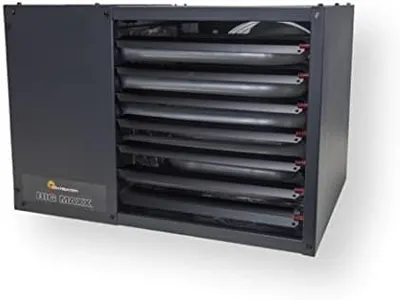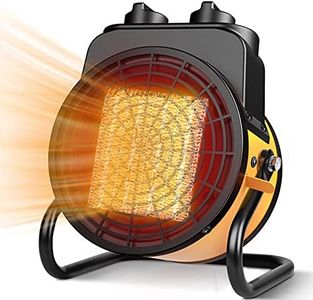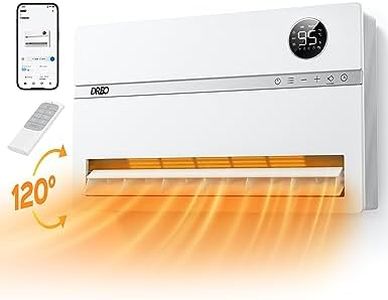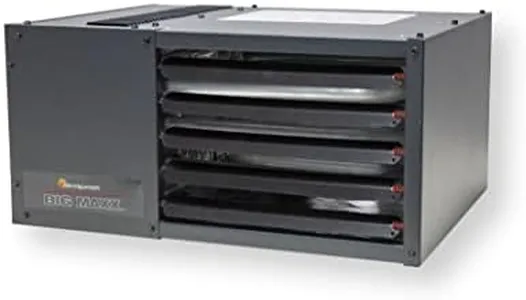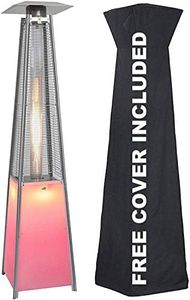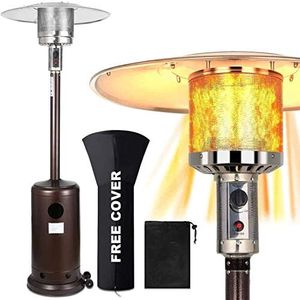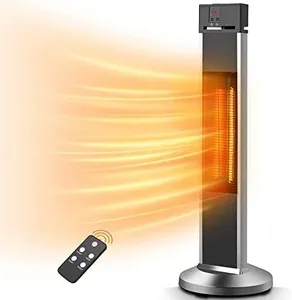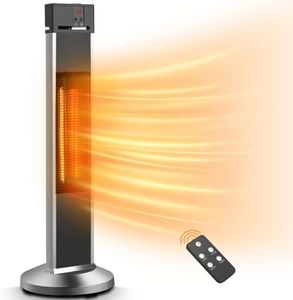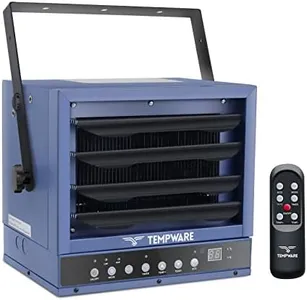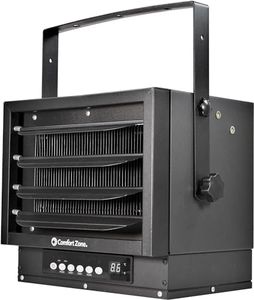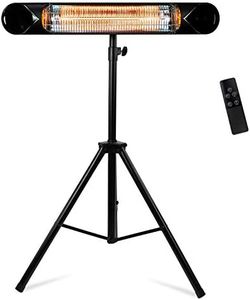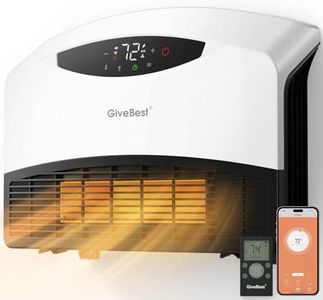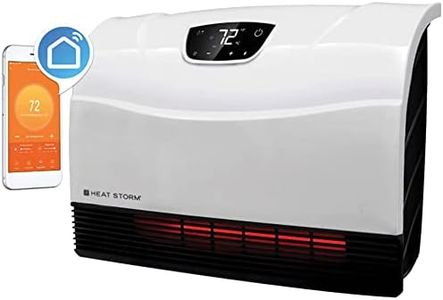We Use CookiesWe use cookies to enhance the security, performance,
functionality and for analytical and promotional activities. By continuing to browse this site you
are agreeing to our privacy policy
10 Best Heaters For The Garage 2025 in the United States
How do we rank products for you?
Our technology thoroughly searches through the online shopping world, reviewing hundreds of sites. We then process and analyze this information, updating in real-time to bring you the latest top-rated products. This way, you always get the best and most current options available.

Buying Guide for the Best Heaters For The Garage
Choosing the right heater for your garage is essential to ensure you stay warm and comfortable while working in your space. The right heater can make a significant difference in terms of efficiency, safety, and overall satisfaction. When selecting a heater, consider the size of your garage, the type of work you do, and how often you use the space. Here are some key specifications to help you make an informed decision.Heating Capacity (BTUs)Heating capacity, measured in British Thermal Units (BTUs), indicates how much heat a heater can produce. This spec is crucial because it determines whether the heater can effectively warm your garage. For small garages (1-1.5 car size), a heater with 5,000-10,000 BTUs may suffice. Medium garages (2-3 car size) might need 10,000-20,000 BTUs, while large garages (3+ car size) could require 20,000 BTUs or more. To pick the right one, consider the size of your garage and the insulation quality. A well-insulated garage may need less heating capacity compared to a poorly insulated one.
Power SourceHeaters can be powered by electricity, natural gas, propane, or kerosene. The power source is important because it affects the heater's efficiency, cost, and convenience. Electric heaters are easy to use and install but may have higher operating costs. Natural gas heaters are efficient and cost-effective but require a gas line. Propane heaters are portable and powerful but need regular refilling. Kerosene heaters are also portable and can produce a lot of heat but may emit fumes. Choose a power source based on availability, cost, and your preference for convenience and portability.
Safety FeaturesSafety features are critical to prevent accidents and ensure safe operation. Look for heaters with automatic shut-off mechanisms that activate if the heater tips over or overheats. Oxygen depletion sensors are important for gas heaters to prevent carbon monoxide buildup. Cool-to-the-touch exteriors and protective grills can prevent burns. When selecting a heater, prioritize models with comprehensive safety features, especially if you have children or pets, or if the heater will be used in a cluttered space.
Thermostat ControlA thermostat control allows you to set and maintain a desired temperature, which can improve comfort and energy efficiency. This feature is important because it helps avoid overheating and reduces energy consumption. Basic heaters may have manual controls with low, medium, and high settings, while advanced models offer digital thermostats with precise temperature settings. Choose a heater with a thermostat control that matches your need for temperature regulation and ease of use.
PortabilityPortability refers to how easily you can move the heater around. This is important if you need to direct heat to different areas of your garage or if you plan to use the heater in multiple locations. Portable heaters are typically smaller and lighter, often featuring handles or wheels. Fixed heaters are mounted on walls or ceilings and are ideal for permanent installations. Decide on portability based on whether you need a stationary heater for a specific spot or a movable one for flexible heating.
Noise LevelNoise level is the amount of sound a heater produces while operating. This spec is important if you plan to spend a lot of time in your garage and want a quiet environment. Electric heaters are generally quieter than gas or kerosene models. Some heaters come with noise ratings, so look for those if noise is a concern. Choose a heater with a noise level that won't disrupt your activities, especially if you use your garage for hobbies or work that requires concentration.
Most Popular Categories Right Now
